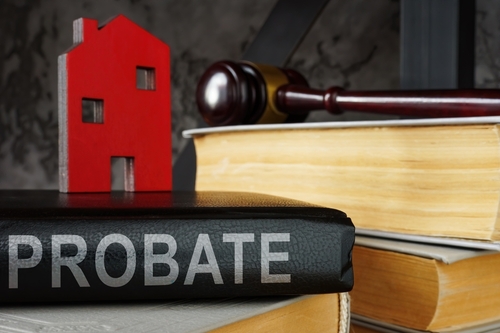Buy-to-let properties have become a common feature of many people’s investment portfolio, and so it is becoming increasingly common for executors to have to deal with a rental property in an estate after someone has died.
If you have been asked to be an executor of an estate with one or more rental properties, then it is important to handle this carefully as you could be personally liable for any losses or mistakes. For example, if unforeseen damage occurred to the property and the conditions of the insurance policy were not being met, you could be liable for the costs of repair.
‘We often see problems arise in estates which have rental properties,’ says Liz Crawford, Associate Solicitor in the wills and probate team here at Wollens. ‘These can include issues in relation to tenants’ rights, tenancy agreements and potential disputes involving the parties involved. It is very important to navigate these issues carefully.’
Vacant properties have their own additional challenges but, in this article, Liz highlights some of the key issues when dealing with a rental property with a tenant in situ during the administration of an estate.
Clarify the terms of the will
The terms of the will should be reviewed as soon as possible if there is one, or you should seek immediate advice on who is entitled under the intestacy provisions if there is no will.
This will allow you to deal appropriately with the person(s) who will ultimately inherit the property once the estate has been administered.
Communicating with the tenants
Where the rental property is occupied by tenants, they should be notified of the change of circumstances at the earliest opportunity. They should be informed in clear language that the property is now being managed by a different person, who becomes responsible for the collection of rent and other issues such as maintenance and repairs.
Insurance
The insurer needs to be told that the policyholder has died. The insurance policy, the term, and any amendments to it, should be reviewed carefully by the executors in order that you comply with all the provisions of the policy in the event of a claim being necessary.
Valuing the property and paying inheritance tax
The property would need to be valued to calculate whether any inheritance tax is due. The opinion of a suitably qualified valuer should be sought as the valuation can be affected by the length of any lease (if applicable) and if there is a tenant in situ.
Inheritance tax needs to be paid within six months after the end of the month in which the person has died, and it is important that the amount of tax is calculated correctly and paid on time to avoid any penalties or interest charges. The property may attract tax relief if it later sells (within a certain period) for lower than its probate value; or capital gains tax may become due if it sells for more than its probate value.
Applying for the grant of probate
Once you have gathered all the necessary information and documents, the probate forms can be completed and submitted to the Probate Registry along with the required fees. The exact forms can differ depending on the specifics of the estate, and we can ensure that the process is completed correctly and efficiently.
What if there is a mortgage?
If there is a mortgage over the property, the position of the bank or lender becomes relevant. That is, following the death of a property owner, the lender may expect the outstanding balance of the mortgage to be paid and this may necessitate the sale of the property. Alternatively, it may be possible for a beneficiary of the property to refinance the mortgage into their name.
Income tax
The executors become responsible for the deceased person’s tax affairs which will include disclosing any rental income to HMRC.
Income tax can be complicated to calculate and, because your role as an executor can involve a risk of personal liability, we work closely with trusted tax advisors to ensure strict adherence to all tax laws during the period of the estate.
Your responsibilities as a landlord
It can take several months to obtain the grant of probate, even with a simple estate, and longer where affairs are more complex or there is a dispute. During this time, the executors will be the landlord of the property.
At all times, you must ensure strict compliance with landlord and tenant laws. This will cover issues such as procedures dealing with deposits and outstanding rent, and other contractual obligations. Eviction of a tenant requires particular care.
You should strive to cooperate with the tenants in order to ensure a smooth transition, collecting any outstanding rent which is owed and keeping accurate written records.
The property needs to be properly maintained during this time and payment of property related costs can become complicated when little or no cash has been collected by the estate.
Dealing with the property
Subject to the terms of the will or the intestacy provisions, you will need to decide whether to retain, put up for sale, or transfer the property. Sometimes a property needs to be sold to pay inheritance tax, to meet other debts, or to allow the sale proceeds to be split amongst beneficiaries. Each of these options will have legal, financial and taxation consequences, including capital gains tax issues in the event of a sale.
Finalising the accounts
When the above issues relating to the rental property and the estate have been concluded, the executor may go ahead with finalising the estate, distributing the property (where instructed) and preparing estate accounts. Estate accounts record all the transactions that have occurred during the administration of the estate and are required to fully account to the beneficiaries.

What can we do to help?
Because of the legal and practical issues involved in dealing with a rental property included in a deceased’s estate, you should take professional advice to ensure that each stage is carried out correctly and efficiently.
We have a specialist team here at Wollens that would be happy to help and talk you through your options. Please contact Liz or a member of the team today for an initial no obligation chat on 01803 213 251 or email [email protected]
Liz Crawford, Associate Solicitor



